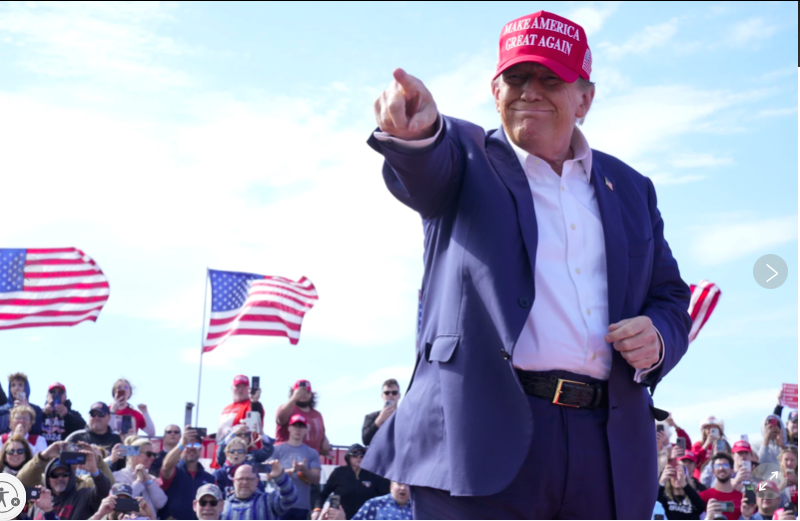Current News on Rhetoric: A Comprehensive Overview
In recent weeks, rhetoric has taken center stage in political discourse, particularly surrounding the actions and statements of former President Donald Trump and current Vice President Kamala Harris. The discussions have been fueled by a series of controversial comments and speeches that have raised concerns about the implications of such language on political polarization and potential violence.
Key Developments
Kamala Harris Condemns Trump's Rhetoric
On September 11, 2024, Vice President Kamala Harris publicly condemned Donald Trump's divisive racial rhetoric. In a response to Trump's comments regarding her identity as a Black woman, Harris described it as a "tragedy" that someone aspiring to the presidency would resort to such language. This condemnation highlights the ongoing tensions in American politics, where rhetoric is often weaponized to undermine opponents.
For more details, you can watch the coverage on PBS.
Trump's Ramped-Up Rhetoric
Trump's recent speeches have drawn significant attention, particularly for their authoritarian undertones. Historians have noted that his language echoes that of authoritarian leaders, raising alarms about the potential for political violence. In a recent address, Trump attacked his political opponents, which has led to renewed discussions about the impact of rhetoric on public safety and democratic norms.
For further insights, check out the analysis on PBS.
The Fallout from Trump's Comments
Trump's rhetoric has not only sparked backlash from political opponents but has also raised concerns among historians and political analysts. His use of terms like "vermin" to describe adversaries has drawn comparisons to the language used by fascist leaders in the past. This has led to a broader conversation about the mainstreaming of hateful rhetoric in American politics, particularly from the right.
CNN has provided an in-depth analysis of this phenomenon, which can be found here.
Public Reactions

Voter Responses to Trump's Claims
In a recent focus group conducted by Fox News, voters reacted to Trump's assertion that he "took a bullet to the head" due to leftist rhetoric. This statement, made during a debate with Harris, has been met with mixed reactions, reflecting the deep divisions within the electorate. The focus group included Republicans, Democrats, and Independents, showcasing the polarized views on Trump's rhetoric.
For more on this focus group, visit Fox News.
Trump's Claims of Targeting
In another debate moment, Trump claimed that he "probably took a bullet to the head" because of the Democratic Party's rhetoric against him. This statement has been criticized as an attempt to deflect blame for his political troubles onto his opponents, further intensifying the rhetoric surrounding the upcoming election.
For additional context, see the report on Fox News.
Analysis of Political Rhetoric
The Role of Rhetoric in Elections
As the 2024 presidential election approaches, Trump's rhetoric has taken on an increasingly ominous tone. He has pledged to prosecute anyone he believes "cheated" in the election, echoing claims he made during the 2020 election cycle. This rhetoric raises concerns about the potential for violence and intimidation at the polls.
For a detailed analysis, refer to the article from the Los Angeles Daily News.
The Impact of Rhetoric on Public Discourse
The current political climate has seen a toxic escalation in rhetoric from both major parties. Analysts have noted that the toxicity of political discourse is particularly pronounced in the Republican Party, with Trump's language often crossing lines that many consider dangerous. This trend has implications not only for political campaigns but also for the broader societal fabric.
For further insights, you can read the analysis on The Conversation.

The current landscape of political rhetoric in the United States is marked by intense polarization and controversial statements from key political figures. As the 2024 election approaches, the implications of this rhetoric will likely continue to shape public discourse and influence voter behavior. The ongoing discussions about the responsibility of political leaders in their use of language underscore the critical need for a more constructive and respectful dialogue in American politics.
For ongoing updates and analysis, you can explore the latest news on Bing.





